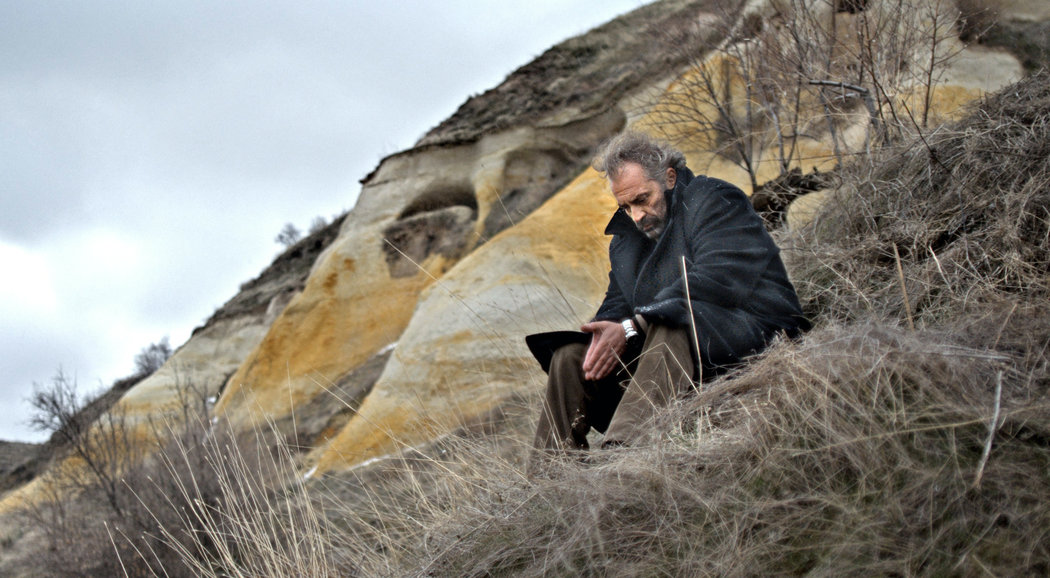
Turkish cinema was not well known worldwide until the late 90s. With the rise of the new generation of young directors who were mostly categorized under the name of “New Turkish Cinema”, it has gotten more attention. But there are also other important films in Turkish cinema history that deserve a deeper look. Here is the list of 15 best Turkish movies of all time.
15. Hayat Var (My Only Sunshine)
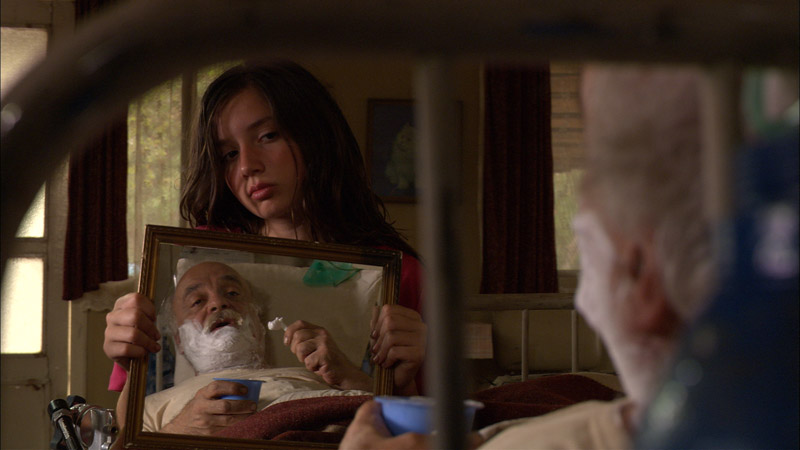
The singular master of New Turkish Cinema, Reha Erdem has demonstrated his skill of creating his own cinematic universe several times. His depressing coming-of-age story “Hayat Var” belongs to his dreamlike but not surreal, imaginary but also realistic world by all means.
A 14-year-old girl who lives in a rambling shack by the Bosphorus with her small crook father and her bedridden, rude, and hateful grandfather, Hayat is a typical Reha Erdem heroine. She is young, full of life, has problems with her surroundings, and dreams of escaping hopelessly.
Istanbul incorporates heaven or hell, and is vital for the discourse of “Hayat Var”. This metropolis may be like heaven for a wealthy one, but for the poor people like Hayat and her family, it’s full of suffering and sadness. Erdem triumphantly uses this characteristic of the city to show how it suffocates Hayat in her loneliness and poverty.
As the dark side of the chaotic city leaves her breathless, her inner call for revolt rises more and more. This rebellious sensation rises throughout the film, and in the end, it reaches an impressive climax. With that, you can also feel the relaxation that Hayat gets, with the help of Erdem’s masterful directorial skills.
14. Gelin (Bride)
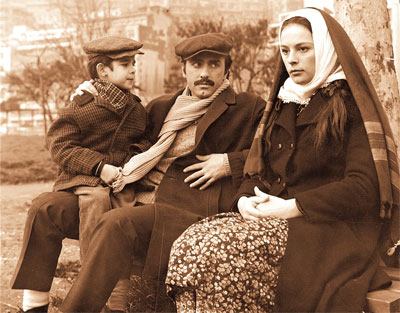
“Gelin”, which is the first part of Lüfi Ö. Akad’s “The Immigration Trilogy”, focuses on the struggle of acclimatization to a new life after moving from a small, conservative, religious Anatolian town to the big, modern city of Istanbul.
Immigration is a complex phenomenon in Turkish since the 1950s; it’s caused serious problems for both big towns and small cities that mostly consist of many villages. In his trilogy, Akad, who is also Yılmaz Güney’s mentor, examines this phenomenon both sociologically and psychologically.
As well as in every film of the trilogy, the main character of “Gelin” is a woman. This is not an incidental selection, for sure. The lead character is used for mirroring the conflict between modernism and conservatism. The family that moved to Istanbul to earn better living conditions is just in the middle of this distortion.
While the men run a grocery store as small capitalists, in their private area they live just like they did before. The bride, named Meryem, played by famous actress Hülya Koçyiğit, is never permitted to go out by the other members of the family, due to their conservative practices. This pressure peaks when Meryem’s little son gets seriously ill. The only goal of the family is earn as much as they can, so they prefer to invest in business instead of spending their funds for the boy’s treatment.
Akad cruelly displays the result of non-systemic immigration, which has been a major problem for Turkey for years. In fact, the conflict between modernism and conservatism, which especially takes place in big cities, exists all throughout the short history of the Turkish Republic. The accomplishment of “Gelin” to examine this important phenomenon in all its dimensions makes it an unforgettable slice of life seen on screen.
13. Uzak (Distant)
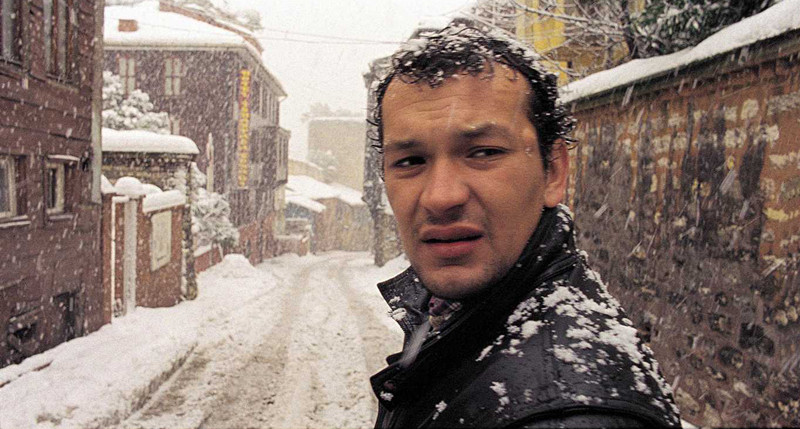
Nuri Bilge Ceylan’s first Grand Prix victory at Cannes – with the second one being “Bir Zamanlar Anadolu’da” – “Uzak” deals with a time period where a young man named Yusuf moves to Istanbul and lives with a relative for some time. I intentionally use the word “period” instead of “story”, because this film is more about a period, a sense, than a distinct storyline.
Director Ceylan is also a photographer, and sets every fixed frame of the movie meticulously to reflect the sense of young man’s effort to exist in a big city. Yusuf frequently enters the frames that patiently show different parts of Istanbul. The relationship between the camera and the actor successfully symbolizes the relationship between the city and the young man.
Yusuf also faces the problem of miscommunication in Istanbul while struggling to settle in. This problem that can be seen between characters, and also between the characters and the city, is the main subject of the narrative level of “Uzak”. Ceylan’s usage of the city as an individual adds a new and poetic layer to his minimalist masterpiece, which made him an internationally-acclaimed filmmaker.
12. Bereketli Topraklar Üzerinde (On Fertile Lands)

Erden Kıral’s long-banned and long-lost film deals with three workers who left their village to earn their living on the most fertile cultivated area of Turkey called Çukurova. These naive, gracious, hardworking men face the grinder mechanism of agricultural production there.
Kıral’s approach, which focuses on the conditions and relations in the production area, differentiate “Bereketli Topraklar Üzere” from the generic style of Turkish cinema, which is mostly character-based. But this choice certainly does not make the characters superficial. The balance that was kept by the director, between the individual stories and the situation of the entire working class, forms the strongest aspect of the film.
The episodic format of the film helps Kıral to raise the tension through the worker’s journey that ends tragically in a wonderfully shot climax. “Bereketli Topraklar Üzerinde” stands as the most integrated film about the routinization of work in industrialized agriculture, the rough working conditions, and the despair of working class.
11. Adı Vasfiye (Her Name is Vasfiye)
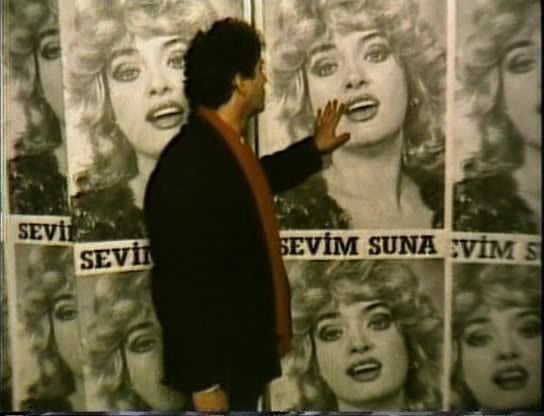
A young writer suffers from not having an interesting story to write about, and hears about a singer named Sema Şimşek. Someone tells him her actual name is Vasfiye and her story is really worth writing about. As the writer investigates her past, the complicated story of the film unfolds.
Although the title character is a woman, the film itself is not just about her. While composing one of the most complex female characters in Turkish cinematic history, director Atıf Yılmaz also focuses on the male view of women in Turkish society.
“Adı Vasfiye” is told by four different men throughout the film. Each man describes Vasfiye as a disparate woman; coquette, virtuous, a daydreaming housewife, a widow. As the scenario leaps from one man’s memory to another’s, the audience inevitably questions the perception of reality.
Yılmaz’s brilliant storytelling technique sways between fantasy and reality, making “Adı Vasfiye” a confusing, dreamlike experience, and also a strict criticism of man’s practice of identifying woman through his own point of view.
10. Sevmek Zamanı (Time of Love)

Metin Erksan’s almost experimental melodrama “Sevmek Zamanı” tells a strange story. A poor house painter sees the portrait of a young lady while working in a luxurious mansion, and falls in love with her without knowing even her name.
After awhile, the painter and the young lady meet, but he refuses her, claiming he’s not in love with her; the portrait is what he truly loves. Thus, the film transforms into an interesting battle between reality and the semblance of reality, and instead of a typical commercial romance, it tells an ordinary love story.
Indeed, “Sevmek Zamanı” deals with love as a phenomenon and claims that a person does not need another person to fall in love; it’s all about himself or herself. Erksan’s sophisticated approach to romance is ahead of his time, even for world cinema.
This unique combination of thought-provoking themes and stylish black-and-white cinematography makes “Sevmek Zamanı” a one-of-a-kind movie. It certainly deserves to be on the same page as the arthouse romances of European cinema, like those of Antonioni or Visconti.
9. Tepenin Ardı (Beyond the Hill)

Emin Alper’s allegorical debut feature film focuses on a global issue, otherization with a local point of view, and turns its simple storyline into a tough criticism of policies of the Turkish government, as well as other states.
A retired public officer moves to the countryside and enjoys his days, doing agricultural activities. But he has some serious problems with the local people, and continuously argues with them. One day, while the family of the retired officer visits him, a goat owned by locals trespasses on his land and a series of events begin, triggering a battle between both sides.
Thanks to Alper’s storytelling skills, thought-provoking script, flawless editing, thriving usage of western iconography, and downbeat but nonstop rhythm that reaches a funny and disturbing finale, “Tepenin Ardı” deserves to be respected as one of the best debut films of Turkish cinema; maybe even the the best.
Also allegorical, the genre-denying narrative of the film says a lot about how mankind – as well as governments – creates enemies for itself from others without even knowing anything about them.